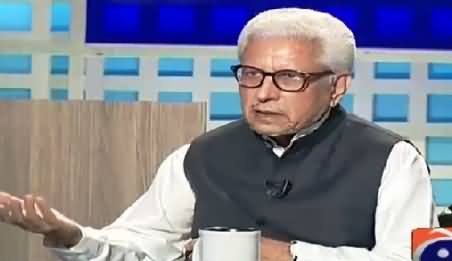

With your interests in religious scholars and the role of religious education in Pakistan, what has been your research focus? What I propose to do in my dissertation (and I have just completed my fieldwork) is to study three levels of religious engagement in development. My view, which I express to them, is that such an approach will guarantee that people will mobilize around them. People have adapted and they will not go to another religious scholar if they have become the center of religious education, and this is the thing that will give you the advantage, as peaceful social actors and with appeal to the wider sectors of society, that some forms of fundamentalism are prohibited in Islam. In Islam, whatever the capacity and competence of the religious scholars, in the case of religious measures they can always go consult their religious scholar. This can change their worldwide image, and offers many opportunities and benefits. They will pay attention to how a segment of the Ulema can contribute to resolving the root cause of conflict.
#Ghamidi new interviews free
How can these religious leaders and Ulema, by mobilizing their social energies through peaceful means, through madrasas and mosques, contribute to the resolution of conflict? I set out for them a proposal of factors that are on their side: one thing is the media, free local independent media, the second is the global media which is now considering religious people in new ways. They issued their verdict, but they don't mobilize themselves and other Ulema to contribute to support the resolution of conflict. To mention, the majority of the Ulema are against the idea of suicide bombing. I proposed how non-violent Ulama can organize themselves through a peaceful movement for the conflict resolution in Pakistan. Recently, I coined the idea of an “Ulama Movement” on the pattern of “Lawyers Movement” (for the restoration and reform of the judiciary in Pakistan). I am also writing columns that address how the religious sector in Pakistan can be channeled and mobilized toward social change and progress. I was inspired by a different set of issues, not to deal with active politics but rather with a pro-development outlook through a process of social change-a social rather than a political revolution. I left the movement in 1995 when I was a bachelor student in economics. The advantage I now have gained is that I can deeply understand the insights and discourses going on within these religious movements, because I have been trained in study circles, in discussions, and in protests, and I can now see these issues as an insider. I was inspired by another modernist intellectual Javed Ahmad Ghamidi, a staunch critic of the contemporary Islamic movements' thought and practice. Later, I had something of an ideological evolution in my understandings of certain parts of the movement. I joined it in class 10 and was part of it for five to six years. As a student in class, I joined an Islamist student movement, Islami Jamiat Talab Pakistan (IJT)-a student wing of Jamat-eIslami Pakistan. This puzzle was my motivation to study religion in the context of development in Pakistan. These actors are actively participating in development activities. What confused me was to understand why secular NGOs and development actors were ignoring this whole area of religious movements, madrassas, and religious institutions. However, when I was student, I was a religious political activist, actively engaged, so I was constantly thinking about issues of faith while I was studying. Intercultural and Interreligious Dialogue TopicĬan you tell us a little about yourself and how you came to your current position? I am from Pakistan and I worked in Islamabad for quite a long time as a lecturer in economics, so my background derives totally from economics.

Towards a Global Culture of Safeguarding.Revitalizing Global Religious and Interfaith Networks.Religion and the Future of Global Governance.Politicization of Religion in Global Perspective.The Geopolitics of Religious Soft Power.


 0 kommentar(er)
0 kommentar(er)
